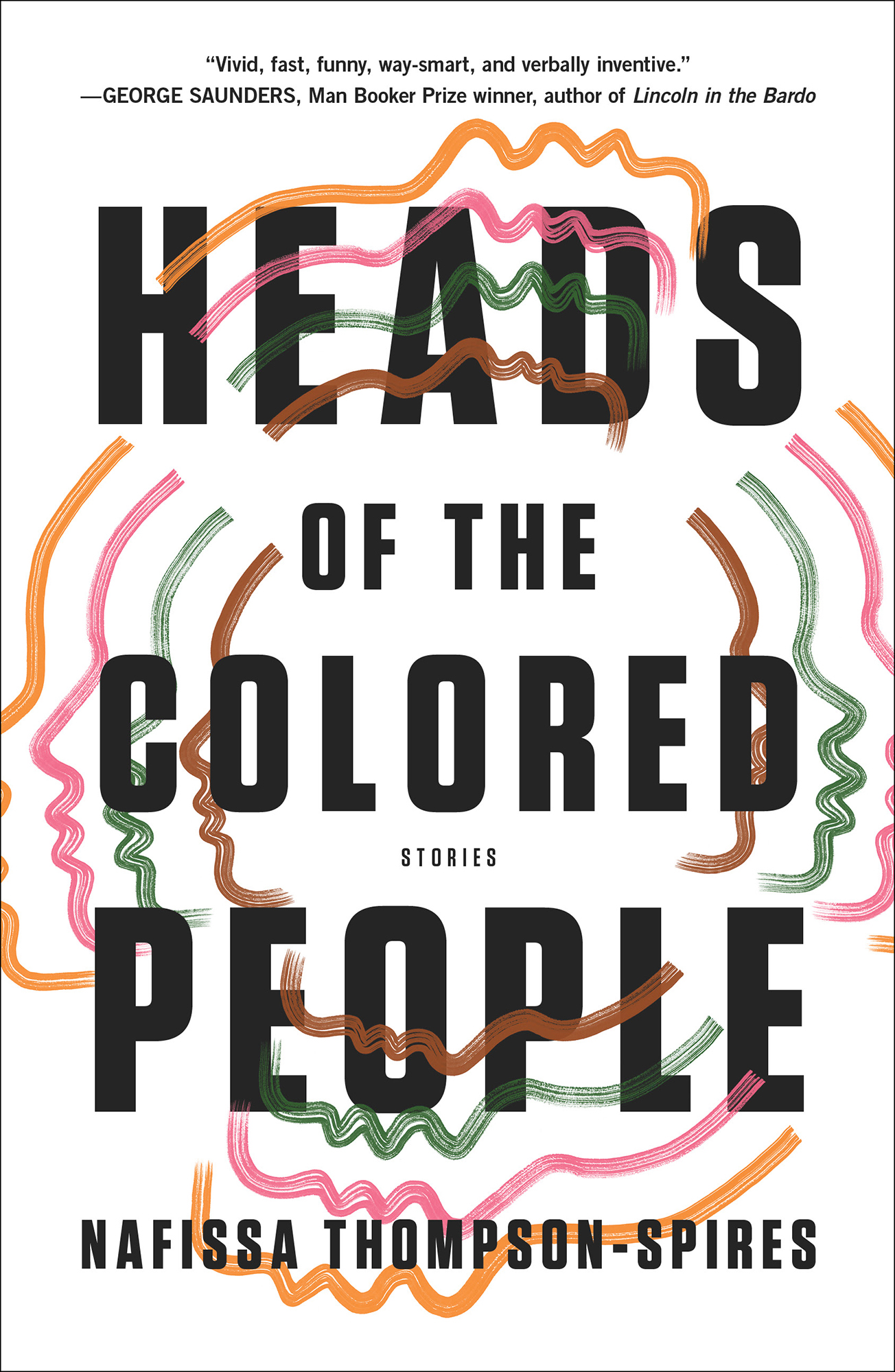
Heads of the Colored People
Stories
فرمت کتاب
ebook
تاریخ انتشار
2018
نویسنده
Nafissa Thompson-Spiresناشر
Simon & Schusterشابک
9781501168017
کتاب های مرتبط
- اطلاعات
- نقد و بررسی
- دیدگاه کاربران
نقد و بررسی

January 1, 2018
In Thompson-Spires’s debut collection, she turns her keen eye onto members of the black community that don’t often receive center stage—a maker of YouTube videos that induce the tingly autonomous sensory meridian response in viewers (“Whisper to a Scream”), fruitarians (“The Subject of Consumption”), and the differently abled and the women who love them perhaps a little too much (“This Todd”). Thompson-Spires eschews the easy or sentimental, and there is a satirist in her that lends the stories a dark, funny edge; for example, Fatima learns how to be black from an albino girl named Violet. The confidence she gains from their lessons lands Fatima her first (white) boyfriend, to whom she betrays Violet’s insecurities about her albinism. In the title story, an anime cosplayer named Riley brawls with self-published comics artist Brother Man outside the Los Angeles Convention Center—the police, of course, misconstrue this, and an artist takes the opportunity to use the altercation and its aftermath in a personal project. This is also the most metafictional of the stories, with an omniscient “I” stepping away at the end to acknowledge the narrative clumsiness of the story before the reader can. Though the characters sometimes feel one-note, Thompson-Spires proves herself a trenchant humorist with an eye for social nuance.

February 1, 2018
A bold new voice, at once insolently sardonic and incisively compassionate, asserts itself amid a surging wave of young African-American fiction writers.In her debut story collection, Thompson-Spires flashes fearsome gifts for quirky characterization, irony-laden repartee, and edgy humor. All these traits are evident in a epistolary narrative entitled "Belles Lettres," which tells its story through a series of increasingly snarky notes exchanged between two African-American mothers via the backpacks of their young daughters, the only two black students in their class at a California private school, who are engaged in some stressful and, at times, physical conflict with each other. The next story, "The Body's Defenses Against Itself," follows these girls, Christinia [sic] and Fatima, through high school and into adulthood as they continue to needle each other over issues of appearance and weight. (Yoga appears to be the answer. Or at least an answer.) The theme of self-image carries into the third story of this cycle, "Fatima, the Biloquist: A Transformation Story," in which youthful romantic rituals, awkward as ever, are further complicated by presumptions of racial "authenticity." In these and other stories, Thompson-Spires is attentive to telling details of speech, comportment, and milieu, sometimes to devastating effect. The title story carries a subhead, "Four Fancy Sketches, Two Chalk Outlines, and No Apology," that only hints at the audacity, drollness, and, in the end, desolation compressed into this account of an altercation outside a comic book convention between two young black men, a flamboyantly costumed fan and an ill-tempered street entrepreneur. It seems difficult for even the most experienced storyteller to achieve an appealing balance of astringency and poignancy, and yet Thompson-Spires hits that balance repeatedly, whether in the darkly antic "Suicide, Watch," in which an especially self-conscious young woman named Jilly struggles with how best to commit suicide (and to tell her friends about it on social media), or in the deeply affecting "Wash Clean the Bones," whose churchgoing protagonist struggles with her soul over whether she should raise her newborn son in a racist society.In an era when writers of color are broadening the space in which class and culture as well as race are examined, Thompson-Spires' auspicious beginnings auger a bright future in which she could set new standards for the short story.
COPYRIGHT(2018) Kirkus Reviews, ALL RIGHTS RESERVED.

March 15, 2018
Inspired by leading abolitionist and physician James McCune Smith's Heads of the Colored People, Done with a Whitewash Brush, Thompson-Spires offers a powerful debut of 11 original, multilayered stories that focus on the African American community, exploring race and the politics of identity but also class issues and the privileges of the black middle class. "Belles Lettres" exemplifies this focus well. Two mothers correspond with increasing snippiness via notes in their daughters' backpacks, their insults targeting education, mental health, physical appearance, paternity, and so on. It would seem that the daughters, Christinia and Fatima, the only black girls in their private school, might seek each other out. However, their rivalry continues through high school, as revealed in "The Body's Defenses Against Itself." This piece and the title story are among several that delve into body and self-image, clarifying what it's like to live in a black body within a racist society. VERDICT Presenting unique characters, gifted storyteller Thompson-Spires navigates the black experience with humor and poignancy while also acknowledging the inherent tensions and exposure to violence black citizens encounter. Highly recommended. [See Prepub Alert, 10/16/17.]--Faye Chadwell, Oregon State Univ., Corvallis
Copyright 2018 Library Journal, LLC Used with permission.

























دیدگاه کاربران